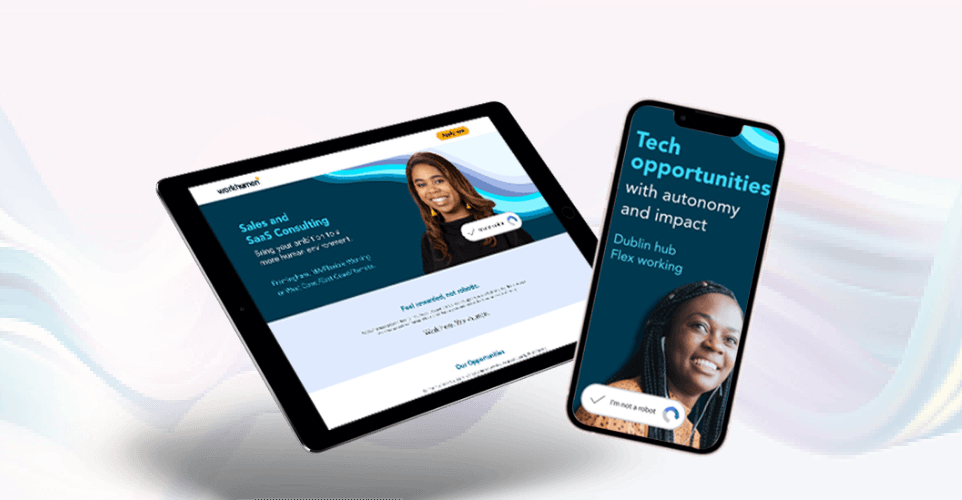Benefits and perks are becoming more important to candidates than ever. In a competitive talent market, benefits are a way in which employers can differentiate themselves from their biggest competitors when salary and culture are level playing fields. In addition, offering extra perks to employees can improve your employer brand significantly as they show your appreciation, make employees’ lives easier, and add an extra layer to your company culture.
Over the last year, the world of work has been at a standstill, and it’s allowed employers to look at their employer brand and EVP more carefully. As a result, they’ve been able to take a step back and assess what is truly important to their people. This has led to a benefit rethink across a whole range of industries.
In the past, companies offered quirky work perks in the hopes to stand out. Office pool tables, bars, and even slides were all fun and games (literally), but how much did they enhance employees’ lives? Of course, when we were all in the office 37 hours a week, a fun environment was quite an exciting perk. But if the last 18 months have shown us anything is that a slide in the office isn’t a perk for anyone; if anything, it’s just a gimmick.
Then there’s the issue of remote working. Before, this was a huge benefit that only some employers offered. But now, it’s not so much of a perk as an expectation. Employees In many industries have become accustomed to working at home and are now favouring a work-life without hectic and expensive commutes, with more work-life balance and more flexibility. In a competitive market, candidates are now turning down roles that don’t have a remote working option. Suddenly, what was once regarded as the ultimate work perk has become the norm for so many that it’s no longer a benefit but a necessity if you wish to attract the best talent.
So, if remote work is now a requirement or expectation for many candidates and we’re starting to see through the gimmicks, what exactly is the best work perk that employers can offer?
Well, with concerns of burnout and employee mental health issues on the rise throughout the pandemic and many workers worrying about their financial security, wellbeing is being pushed to the top of the workplace perk agenda. If employees are happier and healthier, they’ll be more productive, innovative, and more likely to stay with you. So, businesses from startups and scaleups to larger enterprises realise that the best way to take care of their employees is to encourage them to look after themselves. Plus, it will improve your employer brand if you present an image of caring for your employees; they’re much more likely to favour an employee that takes an interest in their wellbeing than one that works them hard with no relief. Therefore, taking care of mental, physical and financial wellbeing is in the best interests of employers and employees.
But, how exactly do you prioritise wellbeing?
No questions asked mental health leave
In Australia, workplaces are beginning to introduce Doona Days into their wellbeing strategies. A doona day is time off for wellbeing or mental health that doesn’t require prior notice. The idea is it’s not to be taken when you need to do something like move house or travel to and from, but a day to switch off, relax and unwind. It’s intended for those days when work just feels a little too much and hopes to help prevent burnout, giving workers a break. While mental health still has a stigma attached to it, especially in the workplace, implementing a no-questions asked policy for these designated days off helps break this attitude. It shows employees that sometimes everyone just needs a break, and that’s not an issue.
A four day week
Then there’s the case for a four day week, a prospect that HR publications and professionals have long argued about. Recently, a four-day working week was trialled in Iceland and saw incredible success. Workers in a range of industries were paid the same salary but worked shorter hours. The workers were all still as productive as ever but felt less stressed, less likely to fall victim to burnout and felt their work-life balance improved. As a result, more and more countries are piloting a four-day working week, hoping that employees will be just as productive with more time to relax and enjoy themselves, and their wellbeing will improve.
No meeting days
We’ve all heard by now that Zoom fatigue is real, but in-person meetings are just as exhausting. The average employee attends 62 meetings every month, spending 35% – 50% of their time in meetings. Sometimes you can have a day that is all meetings, which leads to stress as there is no time to do actual work. As a result, employees will be working longer hours to compensate and have a higher burnout rate. A no meeting day allows employees to focus on work and get things done to avoid working long hours and be comfortable knowing that tasks can be completed with no disturbance.
None work activities
Working remotely can be isolating for many, and so it’s great to bring your team together even if they aren’t in the office all the time. Many employers are finding non-work related activities that can bring teams together and improve their wellbeing, from yoga to meditation. These social activities will improve the mental health of employees living alone but will also give everyone else a much-needed break from work. Talk to team members to see what they feel they would benefit from most, and plan activities that suit a range of employees rather than a select few; not everyone will find yoga a relaxing experience.
Offer financial guidance
22% of employees say that their financial situation causes them stress and impacts negativity on their productivity; financial stress has a proven impact on mental health. The pandemic game employees a chance to look closely at their future planning. This means things like pensions, mortgages and debts have become a bigger priority for many. Companies who offer money management guidance or use a service that also provides advice could help put employees’ minds at ease and minimise stress. Sometimes, it’s comforting to know you can talk to someone about this and seek advice to help you plan for the future or resolve financial struggles. Employees will appreciate an opportunity to relieve this tension.
Discounts and schemes
If employees are also worried about their financial wellbeing, benefits schemes that offer discounts could help them save money and treat themselves when they usually wouldn’t. There are plenty of schemes that can provide employees with discounts on goods and services that could benefit them. However, you should talk to employees first and ensure that the benefits will be helpful to them before you sign up.
Provide an open company culture
However, all this being said, the best way you can prioritise employee wellbeing is by creating an open company culture. Employees must know if they need to talk to someone about any issues they’re having, work related or not. They can do so comfortably and often confidentially. Open door policies are vital to ensure that employees can verbalise their issues and end the stigma surrounding wellbeing issues. If this means scheduling regular catch ups, so your teams feel comfortable to talk, you may need to suggest this to your management, but however you do it, you need to make it clear that the office is a safe space for all. This also means taking action to relieve concerns, even if that means disciplining members of staff who have been making life difficult for others. Employees will be less inclined to talk if they feel that their worries are just brushed under the carpet, so you must actively show you want to help.
Talent Works work with scaling tech businesses to build up employer brands and EVPs that candidates can resonate with and be excited by. This often includes positioning tech employers as caring and conscientious places where employees voices are heard.
If you’d like to know more about our employer branding service, elemen.tal, then contact us and begin a conversation with our team.








